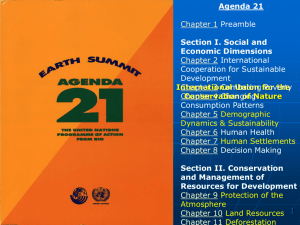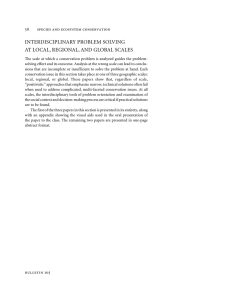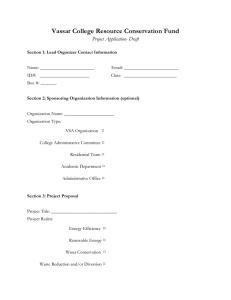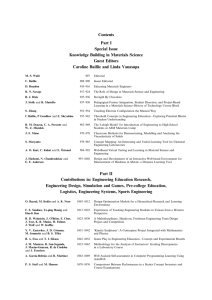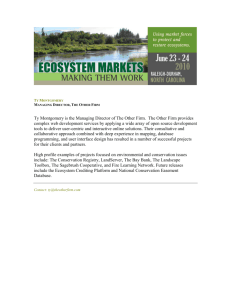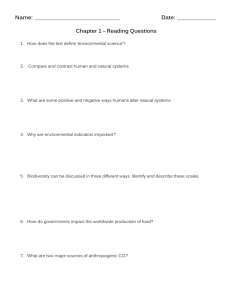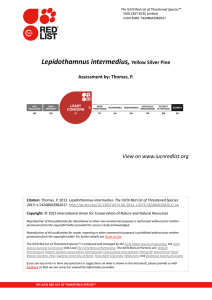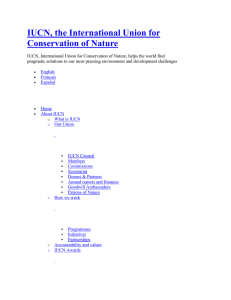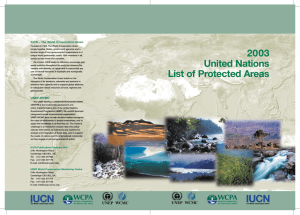ABSTRACT IUCN/Species Survival Commission Action Plans: An Interdisciplinary Approach
advertisement
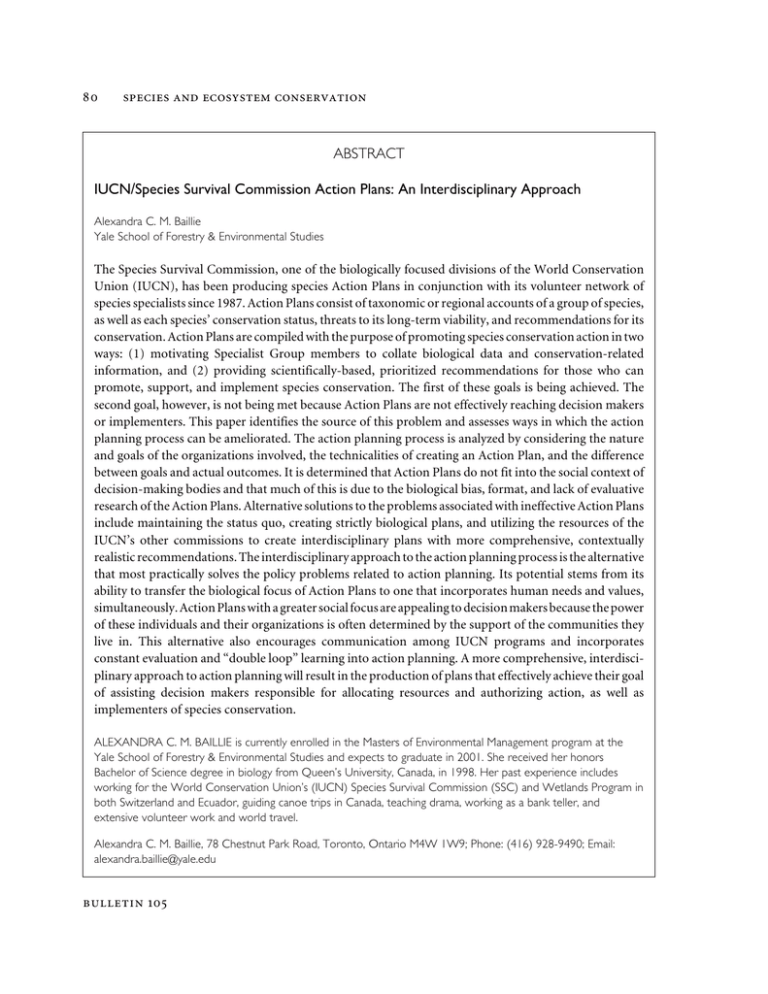
ABSTRACT IUCN/Species Survival Commission Action Plans: An Interdisciplinary Approach Alexandra C. M. Baillie Yale School of Forestry & Environmental Studies The Species Survival Commission, one of the biologically focused divisions of the World Conservation Union (IUCN), has been producing species Action Plans in conjunction with its volunteer network of species specialists since 1987. Action Plans consist of taxonomic or regional accounts of a group of species, as well as each species’ conservation status, threats to its long-term viability, and recommendations for its conservation. Action Plans are compiled with the purpose of promoting species conservation action in two ways: (1) motivating Specialist Group members to collate biological data and conservation-related information, and (2) providing scientifically-based, prioritized recommendations for those who can promote, support, and implement species conservation. The first of these goals is being achieved. The second goal, however, is not being met because Action Plans are not effectively reaching decision makers or implementers. This paper identifies the source of this problem and assesses ways in which the action planning process can be ameliorated. The action planning process is analyzed by considering the nature and goals of the organizations involved, the technicalities of creating an Action Plan, and the difference between goals and actual outcomes. It is determined that Action Plans do not fit into the social context of decision-making bodies and that much of this is due to the biological bias, format, and lack of evaluative research of the Action Plans. Alternative solutions to the problems associated with ineffective Action Plans include maintaining the status quo, creating strictly biological plans, and utilizing the resources of the IUCN’s other commissions to create interdisciplinary plans with more comprehensive, contextually realistic recommendations. The interdisciplinary approach to the action planning process is the alternative that most practically solves the policy problems related to action planning. Its potential stems from its ability to transfer the biological focus of Action Plans to one that incorporates human needs and values, simultaneously. Action Plans with a greater social focus are appealing to decision makers because the power of these individuals and their organizations is often determined by the support of the communities they live in. This alternative also encourages communication among IUCN programs and incorporates constant evaluation and “double loop” learning into action planning. A more comprehensive, interdisciplinary approach to action planning will result in the production of plans that effectively achieve their goal of assisting decision makers responsible for allocating resources and authorizing action, as well as implementers of species conservation. ALEXANDRA C. M. BAILLIE is currently enrolled in the Masters of Environmental Management program at the Yale School of Forestry & Environmental Studies and expects to graduate in 2001. She received her honors Bachelor of Science degree in biology from Queen’s University, Canada, in 1998. Her past experience includes working for the World Conservation Union’s (IUCN) Species Survival Commission (SSC) and Wetlands Program in both Switzerland and Ecuador, guiding canoe trips in Canada, teaching drama, working as a bank teller, and extensive volunteer work and world travel. Alexandra C. M. Baillie, 78 Chestnut Park Road, Toronto, Ontario M4W 1W9; Phone: (416) 928-9490; Email: alexandra.baillie@yale.edu
